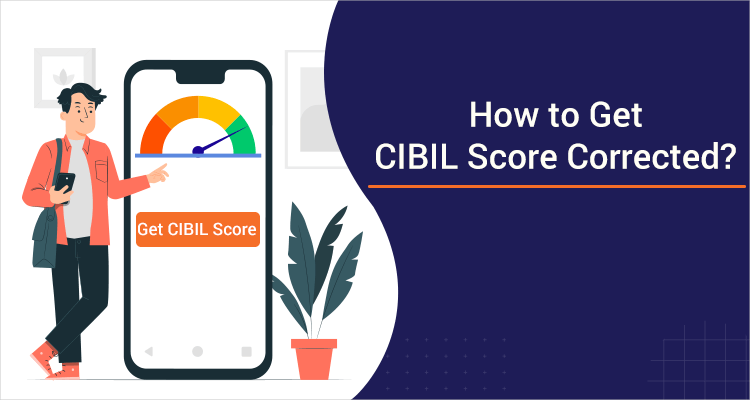Things To Know Before Signing A Personal Loan Agreement
Table of Contents
Verbal deals can be tricky. To remove this glitch, all loan providers, before finalising a loan deal, send a loan agreement to the borrowers. The loan agreement is a legal document to safeguard the interest of both the lender and the borrower. It is a document that binds both the parties and formalises the deal.
The loan agreement outlines the important terms and conditions of the loan. So, it contains details about the sanctioned loan amount, applied rate of interest, total tenure of the loan and terms of repayment.
The loan agreement also provides information about the borrower's name, address and employment status. In case, the loan is applied with a co-applicant, the name and the details of the co-applicant is also mentioned. The agreement also provides details about the lender's name and authorization. Banks also include the name of the guarantors who are liable to pay back the loan in case the borrower defaults.
All loan agreements are drafted by the banks and NBFCs. Reading home loan agreements is generally looked upon as a mere formality. Most borrowers simply run a quick glance through the pages, sometimes tending to ignore points that the agreement mentions. But it is the final reference for any probable dispute between the lender and the borrower in future. So, it is ideal for every borrower to read and understand the clauses of the loan before signing it.
Some of key aspects to consider before finalizing a loan agreement are:
• Interest Rate:
The interest on loans can be fixed or floating. While fixed interest rates do not change with market conditions, floating interest rates may rise and fall depending on the market volatility. In floating interest rates, whenever there is a change in the base rate, the bank changes the interest rate even without waiting for the borrower's acceptance. The interest rate is a key consideration because any change in the interest rate affects the EMI and the subsequent loan tenure.• Debt Default Provisions:
The loan agreement should clearly state what constitutes a default and the lender's course of action for defaulters. An event of debt default occurs when there is a breach of the contract terms. It can be a result of non-payment or late payment of EMI, covenant breaches and can even be due to changes in ownership or control.
Since different lenders have different outlines for the word 'default', a borrower must thoroughly understand the clauses.
The agreement should also provide details about the penalty for a late payment and the tentative grace period after which the lender may file a lawsuit for breach of contract. Many banks and NBFCs delegate the details of the defaulter to some third parties for recovery of dues. Since borrowers are not intimidated about this, they often get annoyed when contacted by third parties for loan collection.
Zaroorat aapki. Personal Loan Humara
Apply Now• Loan Tenure:
Most offers on personal loans have a smaller repayment tenure of up to 60 months. Taking a long-term loan is negative compounding; meaning the longer the loan tenure, the higher is the compound interest and the subsequent EMI. In shorter personal loan tenure, the EMI payments will increase but the overall interest automatically gets reduced.
For example, for a personal loan of Rs.2 lakh for 36 months at 10% p.a., the total interest will be Rs.32,324. But if the loan duration is reduced by a year, then in 24 months the interest payable is only Rs. 21,496.
• Fees and Charges:
Apart from penalties on late payment or loan foreclosure charges, there are some other fees and levies on a personal loan. This includes 0.5% to 2.50%. processing fees which are basically administrative costs borne by the banks. Along with the processing fees, the borrower is also required to pay for the verification charges conducted by the banks for doing a background check of the credentials and the loan repayment capacity of the borrower.
Sometimes some loan providers also add other charges like the GST, stamp duty to the total costs. Some banks also mention the clause of informing them about job changes or relocation. Non-compliance of these terms can result in penalties.
Conclusion
All bank documents and loan agreements are lengthy documents, running into pages. It may need a considerable of amount time to understand the terms and conditions mentioned in the documents. But since debt is nothing short of a legal responsibility, the borrower must read the loan contract patiently. Reading the terms can also help to identify the possible loopholes in the loan deal.
It must be noted that once the loan agreement is signed, the borrower is obliged to adhere to the loan terms. But before picking up a lender and finalising the loan agreement, it is recommended to do a comparative analysis of the lenders and not fall prey to thorny loan schemes.
So, pay attention to choose the right lending partner. IIFL Finance offers personal loans to meet all your needs with ease. All IIFL Finance loan deals are transparent with no hidden costs. For further assistance in calculation you may also check the Personal Loan EMI Calculator. However before signing the deal you can ask the bank to give you a soft copy of the agreement to go through the details and then seal the deal.
Zaroorat aapki. Personal Loan Humara
Apply NowDisclaimer : The information in this blog is for general purposes only and may change without notice. It does not constitute legal, tax, or financial advice. Readers should seek professional guidance and make decisions at their own discretion. IIFL Finance is not liable for any reliance on this content. Read more




